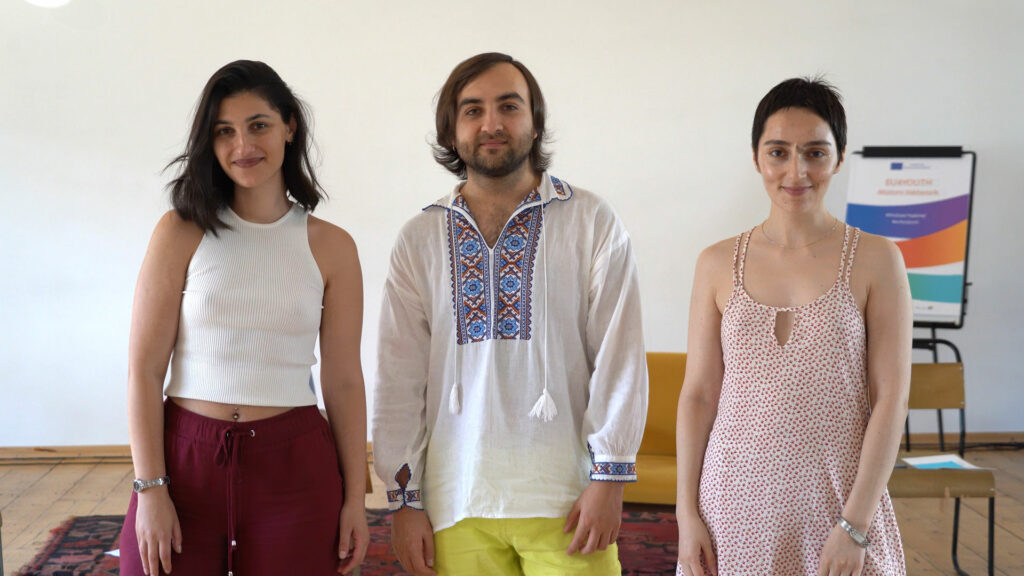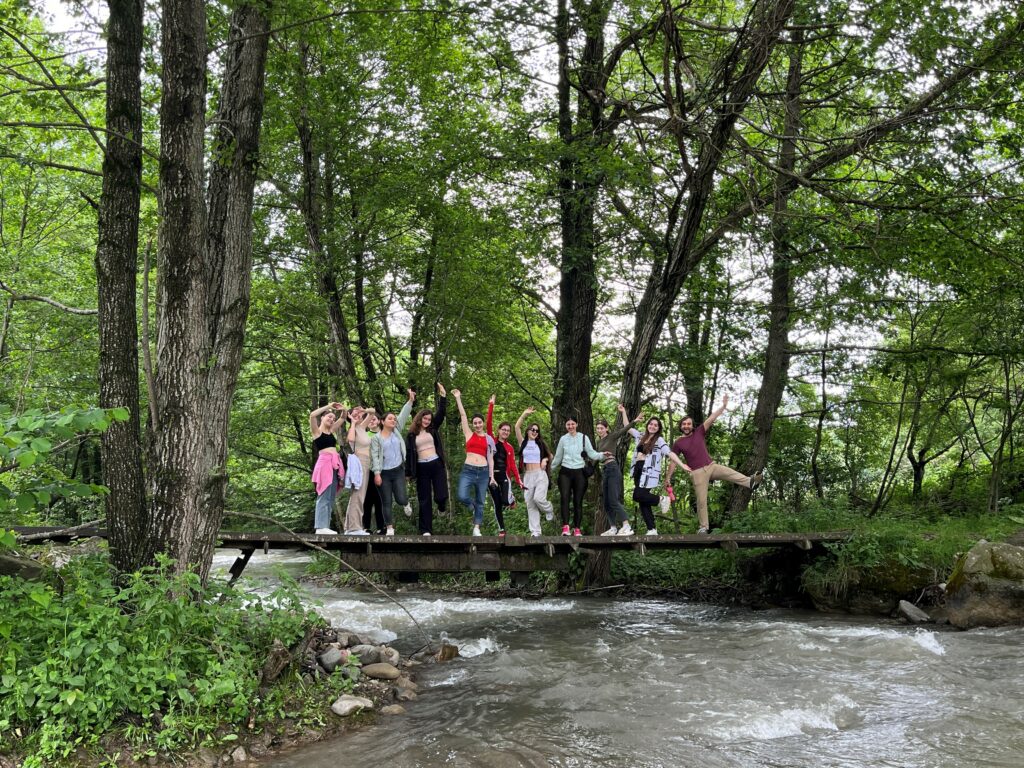Girl Power 2.0: EU4Youth Alumni empowering young women in Georgia
In a transformative movement initiated by a pair of EU4Youth Alumni, young women in Georgia, particularly those from rural areas, are shaking off the shackles of gender bias and limited educational prospects. The “Girl Power 2.0” project equips women between the ages of 18 and 26, from Kaspi, Gori and Khashuri, with the skills needed to address various obstacles, ranging from deeply ingrained gender biases to financial constraints and the lack of opportunities.
Back in 2021, EU4Youth Alumni Nika Kvrivishvili and Nitsa Tsitsagi kicked off the “Girl Power” Initiative. This initiative brought together young women from the Shida Kartli region to help address some of the challenges they faced. Half of these girls continued with “Girl Power 2.0”, a new phase of the initiative that builds on its earlier achievements. The inspiration for this initiative stemmed from Nika’s personal connection to Shida Kartli. Having grown up and lived most of his life there, he intimately understood the dynamics of the community. His familiarity with some of the beneficiaries allowed him to conduct a mapping of the area to gain a better understanding of what women needed.
Recognising the continued need for support, Nika joined forces with Anna Bochoridze and Salome Samsiani, the new generation of EU4Youth Alumni, and forged ahead with the second cycle of the initiative, now known as “Girl Power 2.0”. This collaborative effort enabled them to provide more comprehensive assistance and address a wider array of challenges faced by these young women. Nika explains that the initiative has not only enriched their lives but also created a safe space for discussions on essential topics once shrouded in secrecy, opening doors to brighter futures, and empowering young women to overcome adversity and thrive in an environment that values their potential.
The idea is to challenge the status quo of gender-based discrimination, and help dismantle the hurdles that are holding these young women back. Through a series of workshops and engaging dialogues, the initiative puts the spotlight on workplace harassment, restricted employment rights, and limited access to developing vital soft skills. Moreover, it addresses subjects often brushed aside, such as sexual and reproductive education, female anatomy, reproductive rights, and body positivity. This environment of candid conversations fosters a culture of sharing, learning, and mutual growth.

Lika Kvrivishvili was a young stay-at-home mum from the small village of Teliani. She explains that the initiative opened her eyes to many subjects she had not previously had the opportunity to educate herself about. It has dismantled various taboos and given her the confidence to express herself more openly. As a young mother, Lika’s primary role was taking care of her child. However, due to her family’s need for additional income and the inspiration and motivation she drew from the initiative, she successfully secured a position as a sales associate at a grocery store. In doing so, she shattered the stereotype of the stay-at-home mum and began contributing financially to her family.
Laliko Chkheidze, from Khashuri, was looking for a job when she joined the Girl Power initiative. Empowered by project workshops on how to build a strong resume and how to handle job interviews, Laliko was able to apply for an obtain an entry level job as a sales associate. “It was really important for me to be part of such a project,” she recalls. “Even though I had some knowledge before, it was a wonderful experience to share and develop together. I believe, we all felt that ‘girl power’ within.”

Mariam Valishvili came from the small village of Khviti. Like Laliko, she was a NEET – not in education, employment or training – and turned 19 during the course of the programme. Mariam highlighted the initiative’s unique atmosphere: “The most special elements were the openness and friendly attitude that I felt at every step.” Through the Girl Power initiative, Mariam, instead of following social expectations immediately to get married and have children, felt empowered to follow her own path. Since August 2023, she has been pursuing a bachelor degree in journalism and has become an advocate for women’s rights.
Beyond its focus on education and development, “Girl Power 2.0” stands out for breaking the silence surrounding topics which are still taboo in Georgian society. Participants share a bonding experience — an overnight retreat to Gverdzineti — offering them a safe space to express themselves freely and savour the journey of empowerment. This platform gave the girls the opportunity to discuss various sensitive topics such as abortion, body positivity, gender roles, and LGBTQ+ rights.
Anna, Salome and Nika see “Girl Power 2.0” as an important milestone in the struggle against ongoing barriers in Georgian society.

With preparations for Girl Power 3.0 in full swing, they are enthusiastic about taking another leap forward and growing the impact of their work. Nika explains: “Our vision extends beyond national boundaries – we aim to transform Girl Power into an international project, involving EU4Youth Alumni member countries beyond our own. Through this expansion, we aspire to empower girls on a broader scale, fostering their growth as change-makers who will inspire generations to come.”
Thanks to the dedication of EU4Youth Alumni and their commitment to instigating positive change, more girls are scripting their own destinies, equipped with knowledge, skills, and an indomitable sense of empowerment.
Legal Disclaimer:
EIN Presswire provides this news content "as is" without warranty of any kind. We do not accept any responsibility or liability for the accuracy, content, images, videos, licenses, completeness, legality, or reliability of the information contained in this article. If you have any complaints or copyright issues related to this article, kindly contact the author above.
